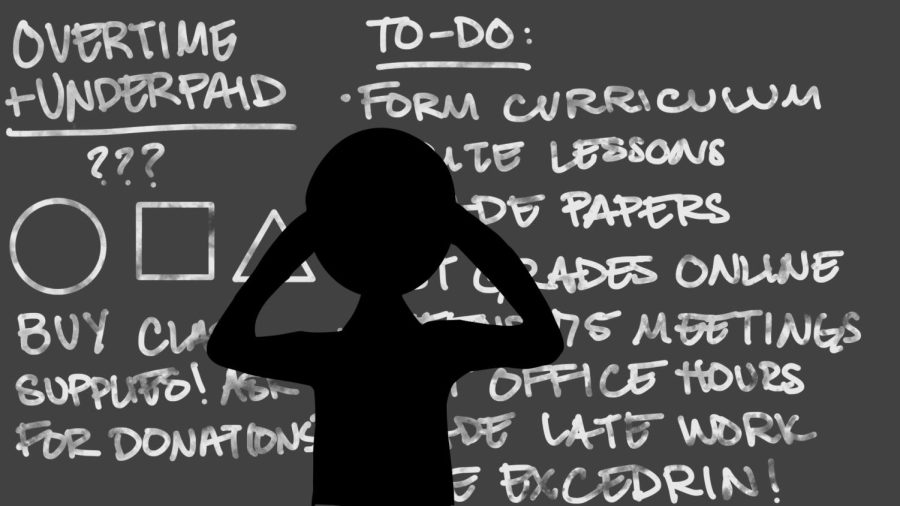Our society would not be able to operate without teachers.
Educators prepare kids with the tools they will need to navigate the world around them, and education is often a tool disadvantaged kids can use to ensure they have a brighter future.
What happens when qualified and successful educators abandon these roles? Or more importantly, what happens when we, as a country, abandon these educators?
It does not take an expert to recognize teachers are required to assume many roles. Whether it is providing a student with emotional support, protecting a child’s physical safety or mediating conflicts or situations of harassment, teachers are expected to do much more than just teach a child academic material.
These responsibilities coupled with a poor work-life balance and relatively low pay compared to other professions and teachers in different countries have been a source of frustration for many educators across the United States.
The issues overworked teachers have been facing have only been exacerbated in the past few years. Now, teachers must also navigate through a politicized pandemic and face additional pressures from parents, conflicting information from health officials and school officials and be at constant risk of getting sick or being exposed to COVID-19.
A 2022 survey conducted by the National Education Association reveals that a shocking 55% of teachers are thinking of leaving their profession earlier than they planned when first entering the profession. This change in thinking can largely be attributed to the pandemic.
Because there are so many teachers leaving the profession, schools are left understaffed nationwide. In New Mexico, one of the most extreme examples, schools are left so barren that the National Guard had to be sent in earlier this year to fill in the 1,000 vacant education positions statewide.
Widespread vacancies indicate the crippling issues teachers face. What can be done to fill these vacancies and ensure teachers stay in their positions long term?
Many think educators have a great work-life balance due to summers off, and many perceive their days to be shorter than the traditional 9-to-5. Because of this thinking, many are under the impression that their salary is reflective of the “short” hours they work.
Thinking teachers do not put in the same hours as someone with a 9-to-5 job is incorrect. The average teacher works 47 hour weeks, and a quarter of teachers work over 60 hours per week. Some of these hours also include time spent outside of the classroom.
Many teachers bring their work home since there is so much that needs to be accomplished, and it is simply not feasible for the work to all be completed during school hours.
Teachers need to be valued proportionally to the service they provide. Proper compensation is necessary not only for the long hours they put in at the classroom and at home, but also for the numerous roles they must assume in the classroom.
As much as we, as a society, say that we value teachers, having a teacher’s appreciation week for five days a year will not cut it.
Not only do teachers need a larger salary proportionate to the work they put in, reform in the school system itself needs to take place. These reforms should implement a better work-life balance so that teachers are not pressured by the school to work overtime outside of the classroom.
Additionally, robust resources to aid students in non-academic troubles should also be implemented so teachers are not entirely responsible for managing issues they do not have the most expertise in. Of course, teachers should still be available to provide students with a safe space, but teachers should not be expected to manage severe behavioral or emotional issues that professionals are trained to handle.
Reform within the school system and better pay are just a few things that may be able to help teachers stay in the profession.
Regardless of whatever changes may occur to benefit teachers, nothing will change the fact that teaching is a difficult profession that may not be right for everyone.
Brenna Martinez is a junior studying linguistics and English.








